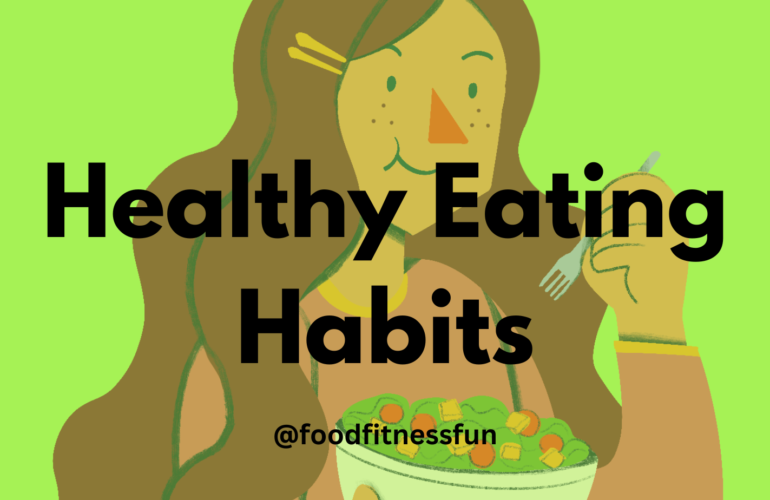Maintaining good health requires not only choosing nutritious foods but also adopting healthy eating habits. In this article, we will explore scientifically supported eating rules that can promote good health. By following these guidelines, you can improve digestion, enhance nutrient absorption, and maintain a balanced relationship with food. On top of that, it makes your weight loss journey easier too.
Eat until satisfied, not completely full:
It is important to listen to your body’s signals of hunger and fullness. Instead of overeating until you feel completely full, aim to stop eating when you are satisfied. Overeating can strain your digestive system, lead to discomfort, and contribute to weight gain. By practicing portion control and being mindful of your body’s cues, you can maintain a healthy balance between food intake and satiety.
Eat without distraction:
In today’s fast-paced world, many of us are guilty of multitasking while eating. Whether it’s scrolling through social media, watching TV, or working on the computer, distractions during meals can hinder our ability to recognize hunger and fullness signals. Research suggests that eating mindfully, focusing on the taste and texture of food, can improve digestion and prevent overeating. By dedicating time to eat without distractions, you can cultivate a deeper connection with your food and promote better overall health.
Chew properly:
Chewing is a vital part of the digestion process. Properly breaking down food in your mouth through thorough chewing can aid in the digestion and absorption of nutrients. Chewing also stimulates the release of enzymes in saliva that initiate digestion. Additionally, taking your time to chew allows your brain to register feelings of fullness, helping you control your portions more effectively.
Add all tastes of food to your diet:
The six tastes in Ayurveda (a traditional system of medicine) are sweet, sour, salty, pungent, bitter, and astringent. Each taste has unique properties and can affect our physical and mental well-being. Including a variety of tastes in your diet ensures a diverse nutrient intake and can help satisfy your cravings. For instance, bitter foods like leafy greens and certain spices can aid in digestion and detoxification, while sweet foods like fruits provide energy and nourishment. Striving for a balanced representation of all tastes can contribute to a well-rounded, healthy diet.
Eat the largest meals at lunch:
The timing and distribution of meals throughout the day can impact your overall health. Research suggests that consuming a larger meal during the middle of the day, such as lunch, may be beneficial. This is because our body’s metabolism and digestion tend to be more efficient during daylight hours. By front-loading your caloric intake earlier in the day, you provide your body with the fuel it needs when it’s most active, supporting better energy levels and weight management.
Stop eating post-sunset:
In line with our body’s natural circadian rhythm, it is advisable to avoid eating large meals or heavy snacks after sunset. Our metabolism and digestive processes tend to slow down as the day progresses, preparing our bodies for rest and repair during sleep. Consuming heavy meals or indulging in late-night snacking can disrupt this natural rhythm, leading to digestive discomfort and potentially interfering with quality sleep. To promote optimal digestion and a good night’s rest, aim to complete your meals at least a few hours before bedtime.
Incorporating these scientifically supported eating rules into your lifestyle can positively impact your overall health and well-being. By adopting mindful eating practices, listening to your body’s cues, and paying attention to the timing and quality of your meals, you can optimize digestion, improve nutrient absorption, and maintain a healthy relationship with food. Remember, good health is not just about what you eat but also how you eat.
